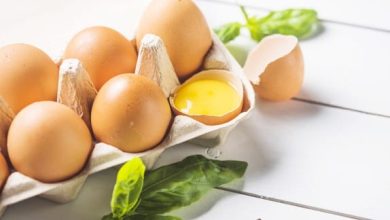10 Reasons You’re Not Losing Weight on Keto
If you believe you are doing all right while on the keto diet, you might be wrong. You are not losing weightYou will find here some Several reasons.This is actually happening.
The ketogenic diet is well-recognized as one of the best weight loss methods. It also has many health benefits.
Ketosis is a state in which your body produces ketones in the liver, shifting the body’s metabolism away from glucose and towards fat utilization.

Ketostix is a quick and easy way to test for urinary ketones.
It’s not the most accurate method, but may be good enough to find out whether you are in ketosis.
Some cases may make it difficult to lose weight even on a low carb ketogenic diet. There may also be other reasons, which I have listed here.
10 Reasons You’re Not Losing Weight on Keto:
1. Too Many Carbohydrates
Are carbs beginning to creep back into your diet?
Start tracking everything with honesty KetoDietApp. Every little treat adds up.
Some people are more sensitive to carbs (or insulin resistant) then others. My carbs should be about 50g/day to feel full and satisfied.
If I lose less than that, my weight loss will be limited. I know this because I am sure that I will not lose much weight.
Because I’ve been doing it for so many years, I usually eat between 35 and 70g per day without any tracking.
It is possible that your carbohydrate intake is too high. You can reduce your daily carbohydrate intake.
Coconut oil can also be included in your diet. Coconut oil is rich in MCTs (Medium chain triglycerides). These are easy to find. digestible,They are less likely to be stored in your body and can be used immediately for energy.
MCTs are converted by the liver into ketones which allows you to enter ketosis.
2. Too Much Protein or Too Little
Your It is possible to eat too much/ too little protein.Protein is the most satisfying macronutrient. You should include high-quality animal proteins in your diet.
If you don’t eat enough protein, you will feel more hungry and most likely eat more. A lack of protein can lead to muscle loss.
If you consume too much protein, it can cause excess glycogen to be converted into protein and disrupt ketosis.
Keep in mind that you will have to eat a lot more than you should – 10-15 more grams won’t make a difference.
This is not the most likely reason, as it’s not as easy to eat too much protein unless you take protein supplements.
Phinney, Volek and their book “The Art and Science of Low Carbohydrate Living” recommend 0.6 – 1 gram of protein per pound of lean mass / 1.3 – 2.2 grams of protein per kilogram of lean mass a day (lean mass = total body weight without fat).
3. Carb Cheating/Carb Creep
Carb cheating/carb creepAnother reason that weight loss plateaus can occur is poor diet. It is important to be very disciplined about what carbs you consume.
It’s a little nibbling here and there of the forbidden foods, leading to carb creep, so make sure you count all carbs.
Dr. Eric Westman explains ketogenic eating and stresses that even mints can have an effect on ketosis and weight loss. Sometimes, even when a label says “sugar-free”, it doesn’t have to be “carbs-free”!
4. Too Many Calories – Yes, They Do Count
This could be due to the following reasons: Too much fat and calories in your diet.
Firstly, it’s indisputable that all calories are NOT equal. It matters if you get them from LCHF-rich, healthy food or high in carbs processed food.
Some people who follow an LCHF diet might find it easier to lose weight if their calorie intake is controlled.
Fat contains twice as many calories as carbohydrates and protein, so it’s important your fat intake lies between the recommended ranges.
There is no diet that lets you consume “unlimited” amounts of calories and still lose weight.
Calories from fat should be 60-75% of your daily intake. Overeating isn’t going to make you happy.
It all depends on how active and healthy you are.
Keep in mind that the macronutrient ratio is not the only aspect you should consider – the type and quality of fats matter.
5. Eating too often or eating too little
Many people believe that you should eat small, frequent snacks throughout the day.
Learn to feel real hunger and accept the fact that you are allowed to be hungry.
The other extreme is to eat too little, you become so starving that you end up eating something you know you shouldn’t and sting far too much of it.
When you feel you are hungry, eat!Make it healthy. If all you want is a sweet treat, but not real food, then it’s probably craving and not hunger.
You can overcome cravings and reset your metabolism to get control of your hunger.

6. Snacking on Nuts or Dairy
Common mistakes made by people are that they don’t know how to deal with certain people. Don’t eat too many nuts and dairy productsIf they are trying lose weight.
Weight gain or stalling may occur not because you are eating nuts and dairy, but because they are high in calories and easy to overeat. 100 grams macadamia nuts contains over 700 kcal and 70 grams of fat.).
Non-starchy vegetables like broccoli, cauliflower and bell peppers or fruits such as avocado or berries are all fine.
These foods are very high in micronutrients, low in carbs and won’t impair your weight loss efforts.
Nuts too often. Nuts are a good source of fiber and omega-3, selenium.
Be careful what nuts you eat. The worst carbohydrate, with 20%, are cashews.
Also, make sure your nut mix doesn’t contain any dried fruit. The worst are trail mixes.
Make sure you have enough nuts to last the day by measuring out small quantities. It is easier to eat nuts from their shells than to open them.
7. A lack of sleep
Insufficient sleep can cause weight loss or stall, which is often an under-appreciated factor.
Lack of sleep can throw off your circadian rhythms and mess with your body’s biological clocks.
Your organs are programmed for a certain time so if you disrupt your sleep, it can be detrimental. A good night’s sleep is essential for fat loss.
A lack of sleep can affect many aspects your health.
Your physical health takes a hit when your sleep isn’t at it’s best. Obesity is more likely to be caused by sleep deprivation.
Sleep has also been shown to be a contributing factor in the balance of hormones — especially hunger hormones.
Ghrelin(the hormone that makes it feel hungry) LeptinBoth lack of sleep and hunger (the hormone that makes us feel fuller) can cause these symptoms.
Your ghrelin goes up and your levels of leptin go down when you don’t get enough sleep[*]Both of these are bad news for weight reduction.

8. Caffeine
Caffeine is a stimulant that increases your adrenaline (the short-term hormone that gets you out of danger – “fight or flight”).
It stimulates liver to release glucose from glycogen stores. What happens next?
This high level of glucose causes insulin release again. Fat gets stored, and fat burning is halted. If weight loss has stopped, can’t sleep, too stressed, stop the caffeine.
You don’t have to give up your coffee, but just have a decaffeinated coffee and see how you feel.
9. You have food sensitivities
It doesn’t matter if your macros are being followed and your calories tracked, it could still feel off.
Many people have food sensitivities that they don’t even know of – the most common of which is dairy. Dairy products include cream, butter and yogurt.[*][*].
When your body is sensitive to a particular property in certain foods such as dairy or gluten, it can cause imbalances in the gut — which then leads to overall inflammation.
This inflammation can lead to a variety of chronic diseases, as well as weight gain.
If you think you may be sensitive to a certain food, it’s important to experiment and pay close attention to what foods make you feel better or worse.
10. You’re Getting Too Much Exercise
You know the saying ‘too much of something can be a bad thing’?
This is true for many things, not just exercise. While exercise is important for improving your overall health, it is not suitable for everyone.
People who are trying to lose weight will primarily use chronic cardio.
Repetitive aerobic training can increase your appetite as your body feels deprived and wants those calories back.
Your biology will always win in a fight between your willpower, and your biology.. You’ll end up overeating to compensate for the excess calories burned.
Although all exercise causes some degree of acute inflammation, exercise that is consistent with good form can also cause chronic, systemic inflammation.[*].




